Staff Members
Current Centre Director: Daniel Miller (email)
- Haidy Geismar

Haidy Geismar is Professor of Anthropology at University College London where she is also the Curator of the UCL Ethnography Collection and the Inaugural director of the new School for the Creative and Cultural Industries. She has research interests in digital materialities, digital collecting and archiving, intellectual and cultural property, indigenous rights, new forms of cultural representation, the anthropology of art, critical museology and the South Pacific, especially Vanuatu and New Zealand. Recent books include Impermanence: Exploring Continuous Change Across Cultures (with T. Otto and C. Warner, UCL Press 2022), Museum Object Lessons for the Digital Age (UCL Press 2018) and Treasured Possessions: Indigenous Interventions into Cultural and Intellectual Property (Duke University Press 2013). Current projects include the mobile memory project (a community sound and digital archive mounted on a cargo bike), the museum of data (with Antonia Walford and Joel Gethin Lewis), and Culture Lab (a new collections and display space for UCL East).
- Daniel Miller
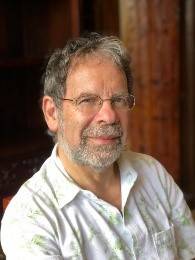
Daniel Miller has just completed two ERC five year projects. Why We Post produced twelve volumes including How the World Changed Social Media. While the Anthropology of Smartphones and Smart Ageing is also on course to produce twelve volumes including The Global Smartphone. Most of these books are available as open access with UCL Press. His first book in digital anthropology The Internet: An Ethnographic Approach was published with Don Slater in 2000. Later books include Tales From Facebook, Webcam (with J, Sinanan), Visualising Facebook (with J. Sinanan) Social Media in an English Village, Ageing with Smartphones in Ireland (with P Garvey) and the first edition of Digital Anthropology (with H. Horst). A recent shift has been towards combining digital with medical anthropology including creating a health campaign in Trinidad and Tobago with Sheba Mohammid.
- Elena Liber

Elena is an anthropologist interested in themes of memory, storytelling, revolution, hope, and the digital world. She has conducted long term fieldwork in L’viv, Ukraine, and her PhD explored intergenerational memory, storytelling, history and the future using methods such as material culture, oral history and walking to explore how history is present in urban and forested landscapes. She is the co-founder of the TikTok Ethnography Collective. Her current research examines the many ways in which the war in Ukraine is being narrated and documented on and through TikTok, and social media more broadly. Her work on TikTok explores themes of digital storytelling, algorithms, and teaching and learning on TikTok. She is interested in how TikTok is changing our ideas of teaching and learning, and how we tell stories in digital spaces.
- Toby Austin Locke

Toby Austin Locke is an anthropologist whose current research focuses on the psychosocial impacts of digital technologies. His first engagements with digital anthropology occurred through his PhD project, Fields of Commoning: attempts and creating (un)common worlds in New Cross, which was a practice-oriented ethnography of a self-organised social centre in London. In this project the development of digital platforms functioned as a participatory research method tracing the processes of collective representation and self-organisation. After completing his PhD at Goldsmiths in 2019 Toby has engaged in research on online conspiracy theory. His current research works across digital and medical anthropology, and focuses on the intersections of ADHD, social media and attention economies. He is also a Lead Researcher in the TikTok Ethnography Collective. Toby joined UCL in 2023 after teaching in anthropology, sociology, psychosocial studies and interdisciplinary research methods at Goldsmiths, Birkbeck, Roehampton and LSBU.
- Tone Walford
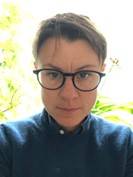
Dr Tone Walford is a Lecturer in Digital Anthropology. Their research explores the effects of the exponential growth of digital data on social and political imaginaries and practices, with a focus on the natural sciences and environmental politics. They have conducted long-term fieldwork with climate scientists and technicians in the Brazilian Amazon. Their current research explores efforts in international observational science to measure, archive and manage the entire Earth - Big Data Science - looking at issues of data justice, data politics, and data imperialism. They have published articles and chapters on topics such as data power and the politics of informational practices, data aesthetics, and transdisciplinarity. They recently co-edited, with Rachel Douglas-Jones and Nick Seaver, a special issue in The Journal of the Royal Anthropological Institute, Towards an Anthropology of Data (2021), and co-edited a volume with Mattering Press, with Cristobal Bonelli, called Environmental Alterities (2020). They teach on the core Digital Anthropology modules, and a module on the Anthropology of Data, with topics ranging across datafied surveillance and the state, data violence, algorithmic economies, digital materialities and datafied personhood.
- Shireen Walton

Shireen is a visual-digital anthropologist whose research focuses on migration and mobilities, transnationalism, and social, political, and generational change in/between Europe and the Middle East. She has carried out ethnographic fieldwork in Iran, Italy, the UK, and online, and is interested in visual and multimodal methodologies in/for ethnographic research. She completed her doctoral research in Anthropology at the University of Oxford in 2015, looking at photoblogging in Iran and the Iranian diaspora, exploring how Iranian photobloggers capture, reflect¬ and refract images and imaginings pertaining to the country in the post-revolutionary and digital era. Her latest work, for her postdoctoral research at UCL Anthropology (2017-2020), took place in Milan, Italy as part of the European Research Council funded ‘Anthropology of Smartphones and Smart Ageing’ (ASSA) project. It examined the place of smartphones in everyday life, and in experiences of age(ing) in an inner-city neighbourhood, involving 16 months of fieldwork working with Sicilian, Egyptian, and Hazara communities. The latter is reflected in her 2021 monograph, Ageing with Smartphones in Urban Italy: Care and Community in Milan and Beyond, which is published open-access with UCL Press.
- Yathukulan Yogarajah
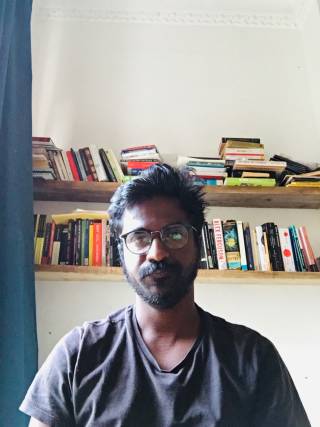
Yathukulan Yogarajah is a Lecturer in Anthropology of Enterprise at UCL. His doctoral research - Thinking with Uncertainty: Scaling up and down in the cryptocurrency world - explored how cryptocurrencies and blockchain technology was being engaged by startup actors near the Old Street Roundabout (Silicon Roundabout) in London, and speculative online retail traders. He is also the co-founder of the TIkTok Ethnography Collective - a project that works collaboratively with students, lecturers, artists, activists, dance therapists, amongst others, to explore TikTok, social media, and our relation to it. His research interests involve exploring ‘Silicon Cities’, blockchain/emergent technologies, gambling, speculative and divinatory forms of labour, and uncertainty.
Research Fellows
- Tanja Ahlin
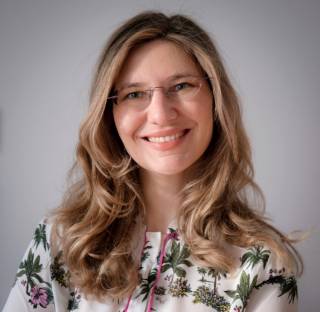
Tanja Ahlin is an anthropologist and science and technology studies (STS) scholar, primarily interested in (health)care, technologies and aging. Her book Calling Family: Digital Technologies and the Making of Transnational Care Collectives is based on ten years of research with Indian families of migrating nurses. The book explores how everyday digital technologies shape what care at a distance is and how people tinker with different kinds of technological devices to do it well. Her current research is on various kinds of animals in elder care, from social robots in the shape of dogs, cats and seals, to therapy animals and even plush toys. Tanja is currently a post-doctoral researcher at the University of Amsterdam funded through the Research Priority Area Human(e) AI, a member of the AI4 Society Sandbox and a blogger at anthropologyofdata.com.
- Jennifer Cearns

Dr Jennifer Cearns is an anthropologist interested in AI, machine learning, and the uses of data within society. She previously worked alongside Professor Hannah Knox on a project with the Ada Lovelace Institute, exploring the uses of algorithmic modelling and machine learning in the children’s social and welfare system in London. She has also worked within healthcare, looking at the ways in which AI and digital phenotyping are used to create ‘personalised’ mental healthcare, and she is currently working within a fintech companying, developing a new type of AI model that seeks to interpret financial vulnerability in a cultural variable way, drawing on ethnographic data sources. She is an affiliate member of the Alan Turing Institute, and was previously Leach Fellow in Public Anthropology at the Royal Anthropological Institute of Great Britain and Ireland. As a previous finalist of the BBC New Generation Thinker Award, she continues to participate in public speaking on radio and at conferences and festivals, to speak about anthropology to broader audiences. Her first monograph, ‘Circulating Culture’, was published in 2023 with University Press of Florida.
- Narmala Halstead

Narmala Halstead is an anthropologist exploring co-creations of knowledge and contemporary changes in several cities. Her current research - Guyana and diasporic locations - incorporates hate speech, violence and privacy issues on social media. Her research extends to ‘unintended’ posts and videos, publicly or secretly filmed and considers questions about the knowledges sought or projected about persons being forced to be of such publics. This is part of a larger project on social justice, belonging and new forms of migration. Narmala held a Readership in Anthropology, University of East London and was convenor of the MSc in Anthropology, Human Rights and Justice. Previously, she was a lecturer at Cardiff University. She also taught at Brunel University London. She currently contributes as a socio-legal consultant on various projects on criminal justice reform and related issues. Her professional media experience includes work as a TV producer.
Her earlier research on families watching television followed interconnected themes of respect relations and makings of home amidst extensive movement and socio-political upheavals. Publications include a recent monograph, ‘Competing Power. Landscapes of migration, violence and the state (Berghahn, 2018); Digital and offline: partial fields and knowledge producers(Social Analysis, 2021). A landscape of respect relations. Television, status, houses. (Home Cultures, 2009); Branding ‘perfection’. Foreign as self; self as foreign-foreign. (Journal of Material Culture, 2002). See also her open access commentary, Do No harm. From which (or whose) sides must we speak? (Journal of Legal Anthropology, 2022).
- Heather Horst

Heather A. Horst is a sociocultural anthropologist who researches material culture and the mediation of social relations through digital media and technology. Her recent books focused upon these themes include The Moral Economy of Mobile Phones: Pacific Island Perspectives (Foster and Horst, eds. 2018), Hanging Around, Messing Around and Geeking Out: Kids Living and Learning with New Media, 10th Anniversary Edition (Ito, et al. 2019); Location Technologies in International Context (Wilken, Goggin and Horst, eds. 2019) and Digital Media Practices in Households (Hjorth, et al. 2020). Her current research focuses upon the growth and development Fijian fashion industry and the infrastructures automation technologies outside of the global north as part of her work in the ARC Centre of Excellence on Automated Decision Making and Society. Heather is currently Professor and Director of the Institute of Culture and Society at Western Sydney University and an Honorary Professor at the Centre for Digital Anthropology at University College London.
- Yiyi Linh

My academic focus has been on examining the intersection between resistant dynamics within youth culture and the persistence of structural inequality. My doctoral research project delves into the role of made-in-China otome games as a cultural arena for the production of "female complaints" against toxic masculinity ingrained in traditional gender norms. This research aims to ethnographically explore how a predominantly female player community utilizes these games as a platform for engaging in cyberfeminist practices and how the consequences of these practices intrude on, transform, and bring possibilities and challenges to their everyday lives, while acknowledging their limitations and privileges due to the Chinese version of class inequality and rural-urban disparity. Ultimately, this research endeavors to enhance our understanding of individuals' agency in a digital era. I am also interested in how cyberspace can facilitate or impede individuals in discerning and discharging their moral responsibility against injustice within their specific situations.
- Maria Nolan

Maria Nolan is a digital anthropologist with a regional focus on urban China, who completed her doctoral studies at SOAS University of London in 2020. Her doctoral research explored the emergence in China of zhai, which loosely refers to a tendency towards staying at home, and traced the unfolding of new modes of sociality among young people in a society rapidly evolving alongside innovations in digital media. Since completing her doctoral studies, Maria has conducted digital research exploring the social and psychological impacts of the Covid-19 pandemic on young people in China and in Ireland. She is currently developing a project focusing on approaches to mental health and wellbeing among Chinese overseas students in the UK and the role that digital spaces play in serving their mental health needs.
- Alice Roberte
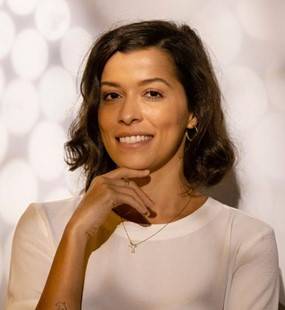
My PhD research project focuses on the mid and long-term consequences of the pandemic for the middle classes living in Brasilia, Brazil. Grounded in the disciplines of digital anthropology and digital communications studies, my project strives to contribute to the theoretical understanding of the "New Normal". I'm interested to analyze the transformations that took place in the routine of Brazilian white-collars, especially in terms of work, intimacy and relationships, care and practices of hygiene and cleaning, food, entertainment, the balance between the public and private and also between the online and the offline. Through the ethnographic lense I aim to understand the relevance of digital communications to these topics and how screens, especially the smartphone, have redefined the notion of the conventional home during the pandemic, rearranging our culture and producing new daily lives and new ways of being in the world.
- Josiah Taru
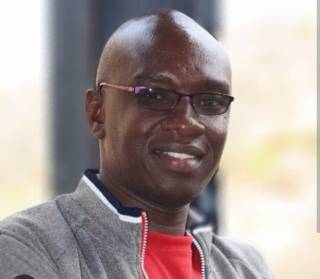
Josiah Taru trained as an economic anthropologist under the Human Economy Programme at the University of Pretoria. His work focuses on how Pentecostalism shapes individual and collective economic subjectivities of Pentecostals in Harare, Zimbabwe. In the last three years, Josiah’s research interest has been shifting toward digital anthropology by exploring the intersection of religion, technology, and social media. In one of his works, Josiah explores ways in which social media reconfigures relations and interactions between Pentecostal clergy and the laity. The chapter illustrates how young Pentecostals rely on their ICT skills to gain some degree of authority on online spaces and attempts by the clergy to limit such authority. As part of the Technology and Society: Anthropological Approaches - Africa and Beyond at KU Leuven, Josiah examines the Pentecostals’ sociality, intimacy, and the creation of affective vibes through online spaces during the COVID-19 lockdowns in Zimbabwe.
- Silas Udenze

Silas Udenze is a PhD of Humanities and Communication at Universitat Oberta de Catalunya (UOC), Barcelona, Spain. He researches young people`s appropriation of social media/new media for socio-political causes. His current project explores the digital storytelling experience of young Nigerians on social media regarding the topic of social change.
- Xinyuan Wang
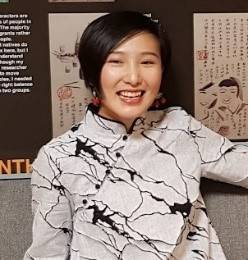
Xinyuan Wang’s first book Social Media in Industrial China examined the simultaneous migration of factory workers from rural to factory China and from offline to online showing how the latter brought them closer to their aspirations. Her new book Ageing with Smartphones in Urban China, which will also be published as open access with UCL Press, looks at another parallel between the smartphone revolution and the earlier experience of this same population in the Cultural Revolution showing how this is the foundation for understanding their subsequent relationship to smartphones. Xinyuan has many journal papers and book chapters, has made two programmes for the BBC world service, was awarded The Daphne Oram Award Lecture for her contribution to UK science and exhibited her art and photography work at the Open Eye Gallery.
PhD Students
- Harshadha Balasubramanian (Started 2019)
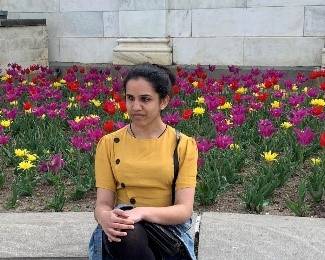
An Anthropology of Virtual Reality Creation
Harsha studies the experiences of virtual reality (VR) content creators who are seeking to rethink the sensory understandings and practices that guide VR content creation. Imbedded within several teams of artists across London and Bristol, Harsha’s PhD research traces how and why creatives negotiate the sensory politics of VR creation- all the way through fundraising, ideation, production, and distribution. Harsha’s project is further informed by practical experience making VR content, including an internship at Microsoft Research. Therefore, this multisited ethnographic work leverages embodied, autoethnographic approaches to address what it means to sense in VR and how these understandings emerge.
- Dave Cook (Started 2017)

Digital Nomads in Southeast Asia
My research explores the lives of self-described digital nomads, who work out of co-working spaces in Southeast Asia, mainly Chiang Mai. I’m interested in the work practices and routines that are imagined and practiced to sustain working on the road. In addition, the imaginary and material traces that are created by and produced for digital nomads are investigated.
The research also explores the functions and roles that coworking spaces play in supporting digital nomads and investigates the elaborate strategies that digital nomads utilise, including digital mediated time management, self-regulation, skills maintenance, image management and personal branding. I also look at how digital nomads try to reframe the concept of citizenship, and its associated structures such as a tax, money, visas, and through entrepreneurship in its various guises.- Juan Forero Duarte (Started 2020)

(In)Formation Technologies: Digital Education State Programmes in Colombia
My project examines the experiences of public-school teachers involved in deploying digital education policies in Colombia. Through public-private programmes, the Colombian State is delivering 3D printers, drones, robotic kits, and block-based coding software (among others) to public schools all around the country. The goal is to 'motivate' more pupils to study Engineering and Technology degrees and cultivate skills needed in the so-called Digital Era. I aim to understand how schoolteachers and other public servants navigate the entanglement of those objects and policies with political clientelism, corruption, fragmented infrastructures, and neoliberal imperatives of self-improvement.
- Xiaolin Li (Started 2019)

Period Tracking Apps in China
Xiaolin’s work focuses on the making and using of period-tracking apps in the context of a study of menstruation and sexuality in contemporary China, drawing on an ethnographic study of how users of period-tracking apps collect, interpret, and utilize their bodily data, and how the period-tracking company designs period-tracking products in accordance with their ideologies and business strategies. It explores the way in which the use and design of period-tracking apps simultaneously blend with the local culture and preexistent practices of the body while offering new opportunities for the re-imagination of the menstrual body and bodily practices with its digitalized and datafied new affordances. For example how menstruation is understood and experienced by transgender people.
- Chun Liu (Started 2021)
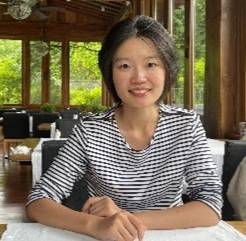
The Soundscapes of Shangri-La
My project focuses on the efficacy of sound. I explore what sounds do, i.e., all the effects sounds engender in relation to daily experiences, life courses, and social change. With an emphasis on the impact of digital technologies such as social media on the experience of sound. The study is focused upon a population in the region of Shangri-la, northwest Yunnan Province, China. I expect this project will contribute to anthropology by showing the ways sounds act as a thread through the social and the individual, materiality and contextual, and how the assemblages of sounds, places and memories work in relation to each other and as a part of social dynamics.
- Sam Meeson-Frizelle
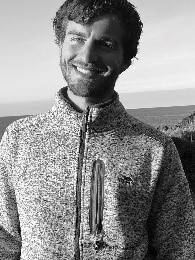
Bit-Coin mining in Paraguay
My research sets out to trace the material contours and contested energo-political relations of Bitcoin "mining" in Paraguay. I am interested by how a seemingly abundant supply of hydroelectric energy and a favourable regulatory setting in Paraguay attracts industrial scale mining companies from the Global North. Yet, my research crucially asks how this might challenge the energy and economic sovereignty of Paraguayan people and institutions. In doing so, I hope to bring to light the uneven material and political terrain that permeates a contemporary digital economy.
- Alice Millar (Started 2020)

Difficult politics and difficult objects: social media in museums
Alice’s PhD focusses on the changing digital media practices of museum professionals. She especially focusses on how social media is used in the museum collection to respond to and challenge “difficult politics” like populism, prejudice and undemocratic practices. In her fieldwork with the Museum of London, Alice has co-curated a display called 'Into the Twitterverse' which explores modes of curating and displaying Tweets and reveals layers of digital and bureaucratic practices in museums. Alice’s research sits within a larger research project: Challenging Populist Truth-Making in Europe (CHAPTER), which is based in the CARMAH research centre in Berlin. Her previous work has explored digital sound design and sensory engagement in museums.
- Ibnu Nadzir (started 2022)
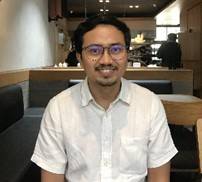
Nationalism and the Start-up Ecosystem in Indonesia
In the past decade, Indonesia has become one of the countries with the most significant internet users globally. This development also brings with it the rise of technology start-ups. While in some ways comparable to global start-ups in many aspects, an ethnography can examine many local aspects. These arise from the specific characteristics of each start-up, the state officials and digital entrepreneurs present technological corporations as both the future of the Indonesian economy and nationalism. The research project thus seeks to understand several issues: How do the specific cultural, social, and political contexts in Indonesia shape the development of Indonesian start-ups? What kind of sociality is developing among start-up entrepreneurs and professionals in Indonesia?
- Alice Riddell (Started 2020)

Citizen app and the digitization of crime in New York City
Citizen is a live crime and safety tracking app in New York City that uses AI to monitor police scanners for incidences that are relevant to “public safety”, whilst also utilizing user-recorded footage, as users near a crime, fire or accident, are encouraged to ‘go live’ and film the unfolding events. Users comment additional information and post expressive emojis as incidences unravel. In sharing information across a digital network, Citizen functions as both a form of social media and a peer-to-peer surveillance app. Through this lens, my ethnographic research investigates the impact of the digitization of crime and how this affects community relationships in increasingly gentrified neighbourhoods in Brooklyn. I am further interested in the delicate balance between care and surveillance and the ways in which urban communities foster a sense of safety and security in the digital age.
- Kellynn Wee (Started 2020)
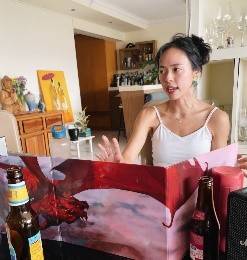
Tabletop Role-Playing Games in Singapore
Kellynn Wee’s research focuses on speculation, play, and contingency in tabletop roleplaying games in Singapore. She explores how TTRPGs played and made in Asia transform taken-for-granted genres and contexts of Western fantasy. She is also interested in how TTRPGs make the conditions of reality explicit and changeable, and how this experience resonates in players’ constructions of broader cultural and social worlds. Check Kellynn's website.
- Kunyu Xiang (Started 2021)

Short Video Social Media in China
My thesis explores the use and consequences of short video social media in a Chinese county, Enshi. I try to figure out whether, how, and to what extent the use of short video social media like Douyin (TikTok) and Kuaishou is individualized, more separated from the influence of social relationships compared to the use of other dominant Chinese social media like WeChat and QQ. Possible trends of individualisation in social media are explored from the perspective of the urban-rural binary, kinship, gender expression, etc. In this process, I’m particularly interested in the role played by personalised recommendations and exposure mechanisms supported by the special artificial intelligence algorithms of short video platforms.
- Ken Zheng (Started 2020)
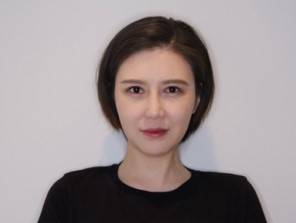
The Backstage of Social Media in China
Ken’s work explores the culture of IT work, based on 11-month fieldwork within a project team of ByteDance the company that created TikTok. I discuss the overspill of data culture from the IT sector to the broader social world through an ethnography of Chinese IT professionals. This ethnography has revealed many overlaps and interrelations between the data practices of Chinese IT professionals and the broader social implication that arise from their deployment of quantification methods, such as clickbait mechanisms and captivating algorithms across online infrastructures. It also addresses the role that Chinese IT professionals and domestic tech giants play in reinforcing audit culture in both the private realm and increasingly digitalized social spheres. My project attempt to untangle how Chinese IT professionals pursue their self-identity and individual aspiration bridled with the process of contriving a social media for public good, and how their emergence as an elite class implicates the building of the digital infrastructure that serve Chinese society of a diverse population.
- Haichao Wang (Started 2019)
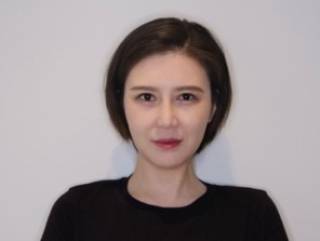
Digital Modernity and Religiosity Among Urban Chinese Hui Muslims
The first two decades of the 2000s have witnessed significant changes in information and communication technologies (ICTs) in China. The widespread use of social media in almost every aspect of daily life among the Chinese population has been attributed to the state-sponsored project of development and modernization of Chinese society since the post-Reform period (early 1990s). Among various groups, Chinese Hui Muslims, owing to their unique ethnic history and identity, which demonstrate a cultural fusion of Chinese Han culture and Islamic traditions, find themselves navigating the use of social media with two sets of cultural significance and values. In my research, I delve into how Chinese Hui Muslims interpret and practice the national goal of modernization, how they strike a balance between being a modern Chinese individual and a devout Hui Muslim, and what strategies, infused with values, they employ to reconcile the clash between national political ideologies and Islamic traditions.
Digital Anthropology Network
- Directory of Digital Anthropologists
As a joint initiative, the Departments of Anthropology at Goldsmiths, Manchester and UCL hosted an informal day for anthropologists in May 2023 around the UK who were involved in some way or other in the field of digital anthropology.
This is a directory of digital anthropologists in/around the UK as of June 2023, which will be updated when the next Digital Anthropology Day is held in 2024.
 Close
Close

